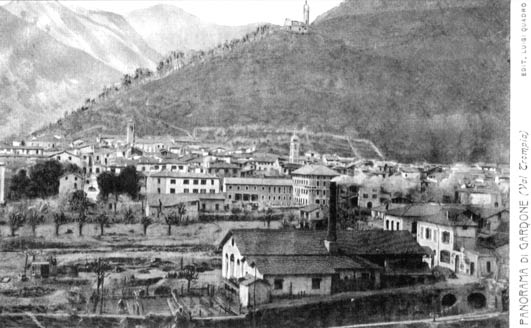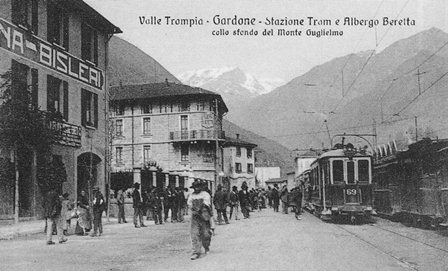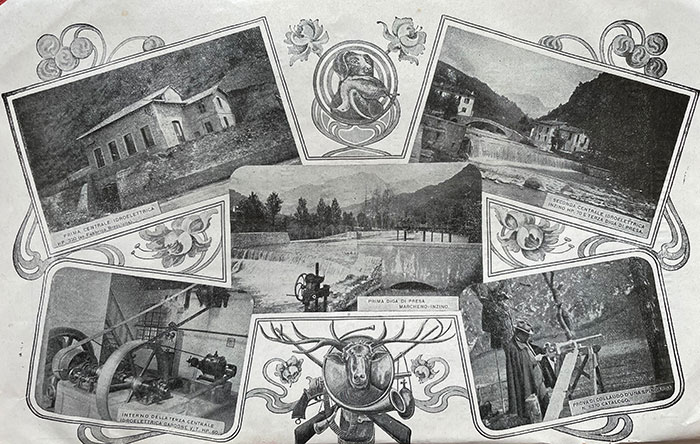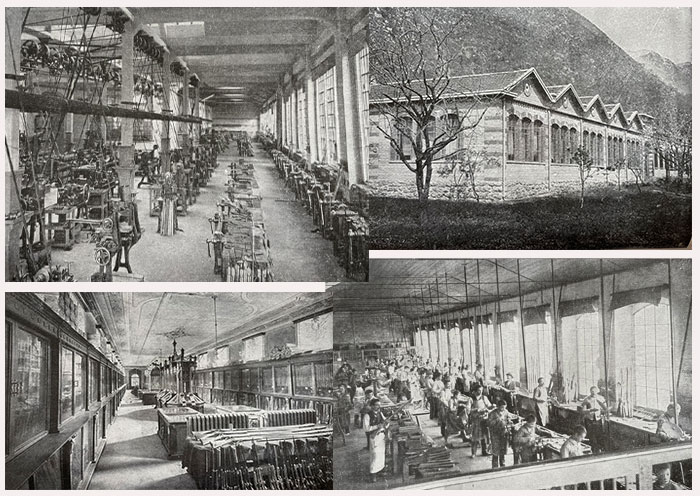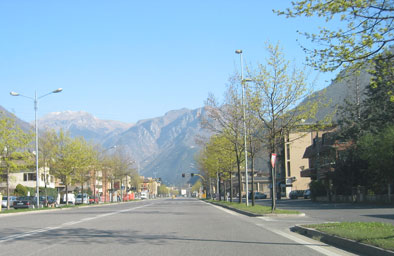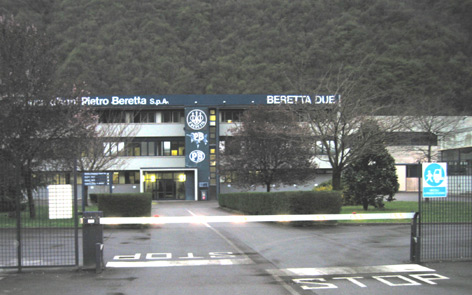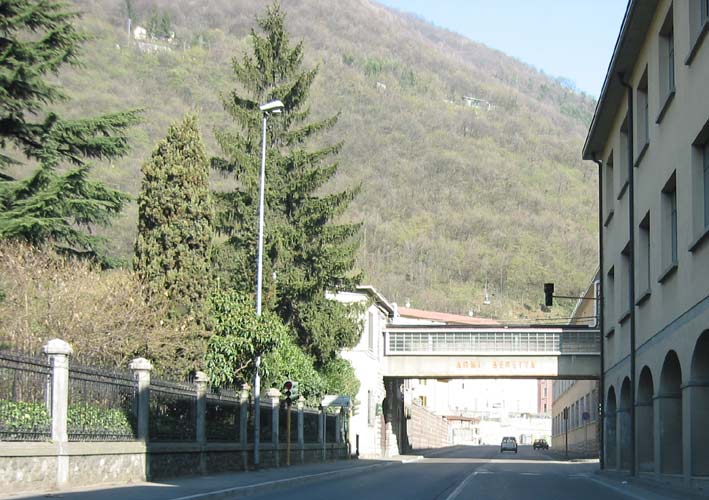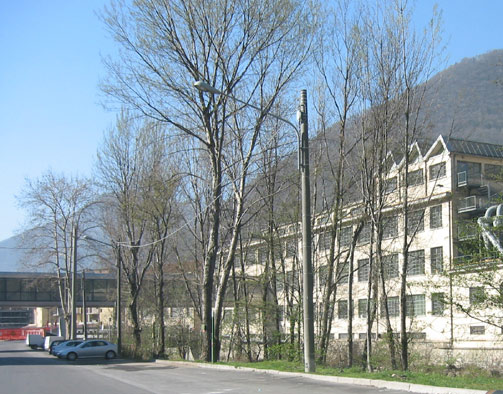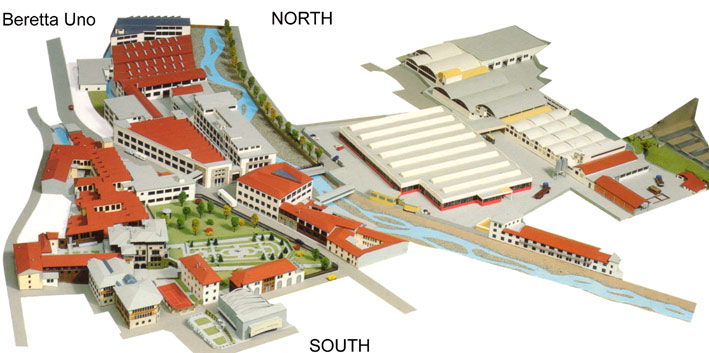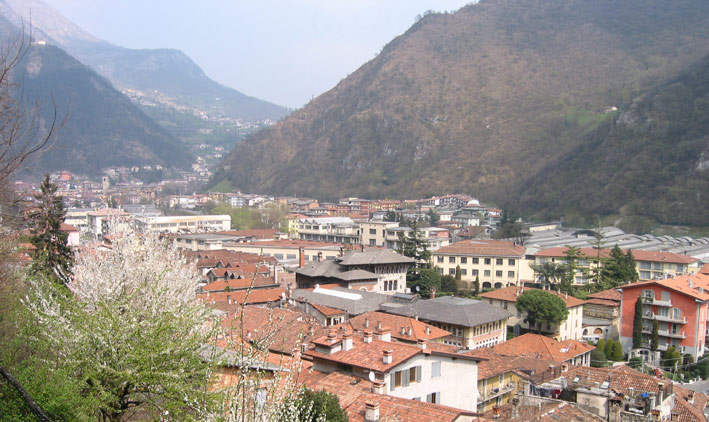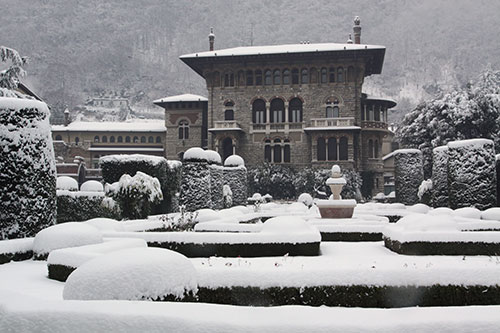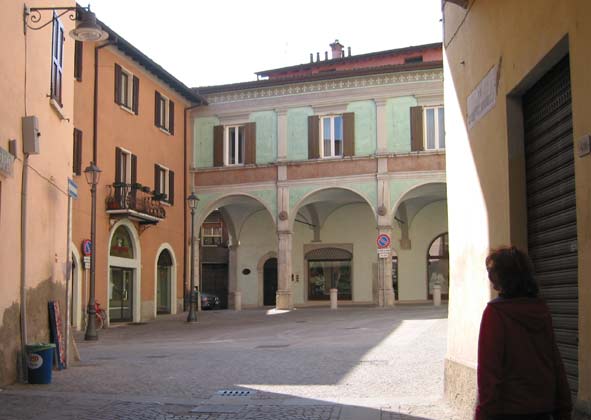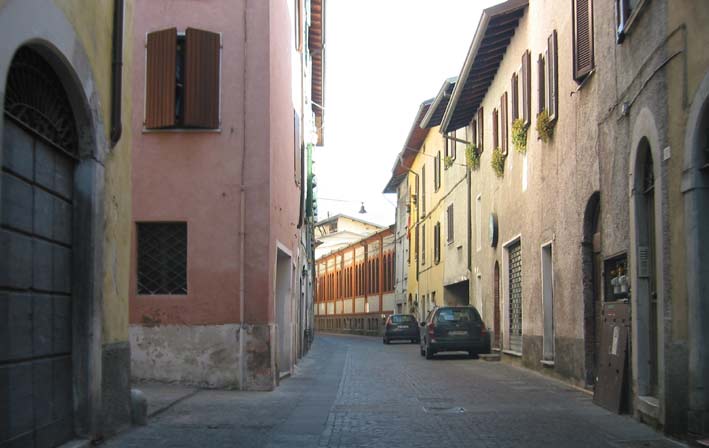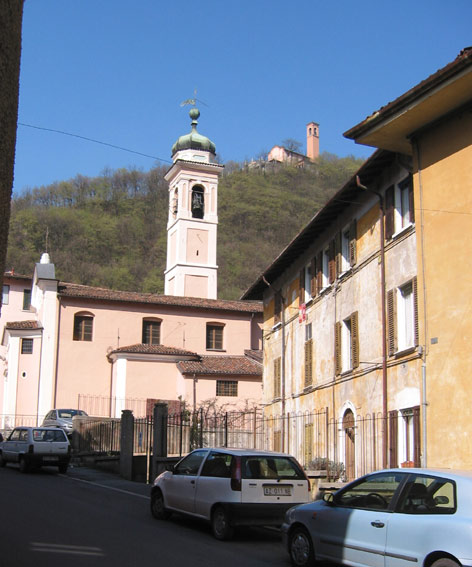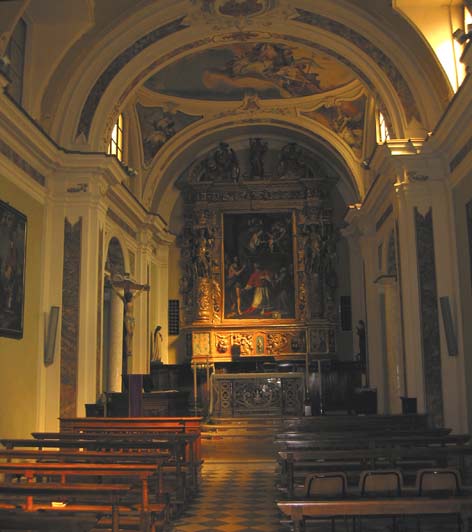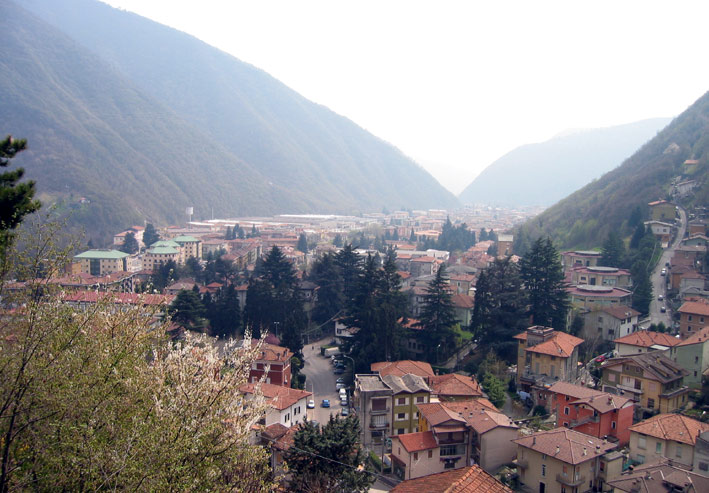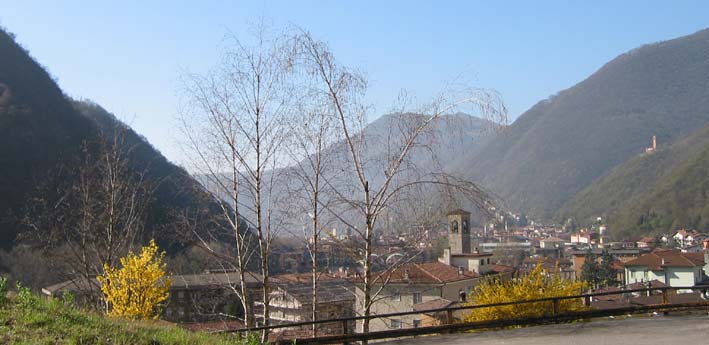Click here for "How to reach Gardone Val Tromopia" View the map on Google Maps: https://short-link.me/18fhk |
A historical profile The origin of this towns name is thought to be the gothic "warda", which meant "sentry-post". Several old document show that the there was a fortress overlooking the Mella and the re valleys in very ancient times. A parchment dated 1317 ad. Mentions the fact that the captain of Val Trompia sometimes resided in the castle of Gardone. Archaeological excavation in the area has revealed that there were settlements here during the bronze age and throughout the time of the Roman Empire. Gardone’s golden age came under the Venetian Republic, when the townspeople held numerous trade privileges, and the town offered protection to harquebusiers, promoting the sale of arms beyond the municipal border. It was this contact with the rest of Europe that led to the vast spread of protestant doctrines in the valley in the sixteenth century. While the sixteenth century was a time of great prosperity for artisans and arms traders, on the other hand it was precisely these two groups of people who divided into two factions, causing conflict and violence for many years. In spite of this continuing feud, the production of arms continued to develop throughout most of the seventeenth century, facilitated by a law made in 1644 removing restrictions on exports. When the Mella river flooded in 1676, the arms factories were damaged and the town was forced to ask for a loan of 6000 ducats from the Venetian Republic. Gardone became part of the Republic of Brescia in 1797, becoming “Capital” of the district and the seat of the magistrates court during the restoration. The Italian Risorgimento and the unification of Italy supported the economic recovery of the arms business.
|
||||||||||||||||||||||||||||||||||||||||||||||||||||||||||||||||||



